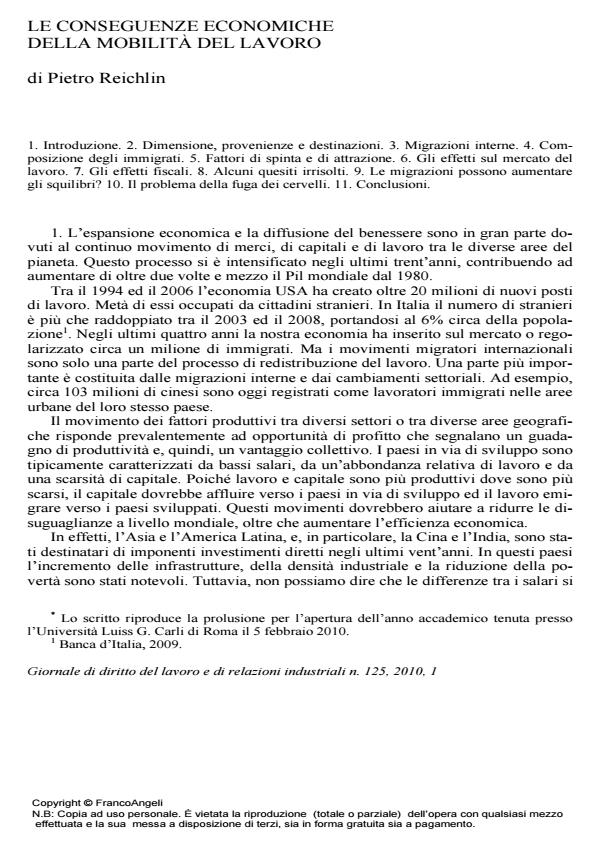Le conseguenze economiche della mobilità del lavoro
Journal title GIORNALE DI DIRITTO DEL LAVORO E DI RELAZIONI INDUSTRIALI
Author/s Pietro Reichlin
Publishing Year 2010 Issue 2010/125
Language Italian Pages 22 P. 159-180 File size 603 KB
DOI 10.3280/GDL2010-125003
DOI is like a bar code for intellectual property: to have more infomation
click here
Below, you can see the article first page
If you want to buy this article in PDF format, you can do it, following the instructions to buy download credits

FrancoAngeli is member of Publishers International Linking Association, Inc (PILA), a not-for-profit association which run the CrossRef service enabling links to and from online scholarly content.
Labor mobility has strongly increased in the last twenty years. This phenomenon is likely to persist both because wage differentials between nations are still high and because many developed countries are characterized by population decline and ageing. Migrations produce a net efficiency gain and they decrease inequalities across nations. On the other hand, they can also have undesirable effects: a reduction of unskilled workers’ wages and a higher fiscal burden in destination countries. However, the empirical evidence produced in recent years has shown that these effects are moderate. The brain drain contributes to technical progress in developed countries, but it may have positive effects on countries of origin as well.
Keywords: Migrations, Wages, Economic growth, Demographics, Inequality, Brain drain
Pietro Reichlin, Le conseguenze economiche della mobilità del lavoro in "GIORNALE DI DIRITTO DEL LAVORO E DI RELAZIONI INDUSTRIALI " 125/2010, pp 159-180, DOI: 10.3280/GDL2010-125003